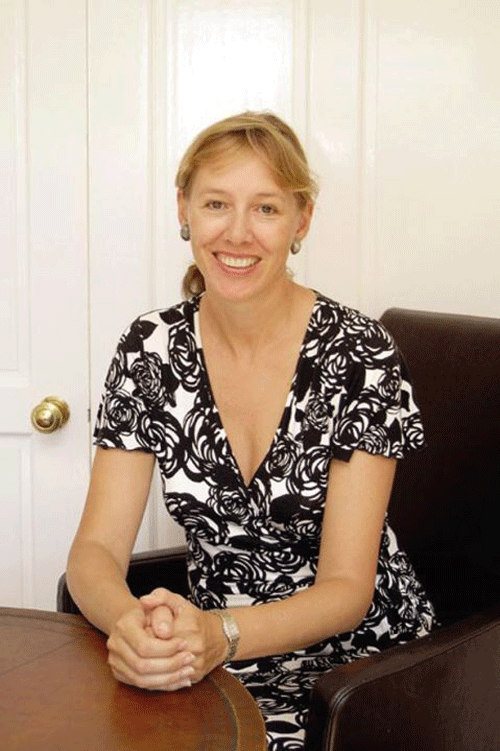My Way: Quest Business Training's Judith Kark gives her tips for success in the workplace
'Don't say on your CV that you like to watch TV'

Judith Kark is head of development at Quest Business Training, a merger of the London secretarial colleges Queen's, St James's and Lucie Clayton
What did you want to be as a child?
A marine biologist. I loved Flipper and Marine Boy!
What did you realistically think you'd end up doing?
Until I was 12, I really thought I would do that, then science started to get hard and I wasn't very good at swimming.
You studied English, history and politics at Buckingham University. Was it worth it?
It was a fantastic course, open and challenging. After graduating I wanted to go into advertising, because in the early 1980s, advertising was high profile and women had a fair crack at getting on as much as men. But I couldn't get on to a graduate training programme. I was too polite in interviews; I had the ambition but my technique was wrong.
So what did you do?
A 12-week secretarial course, which meant that I had to swallow my pride. It was a straightforward course and, by the end, I had plenty of job offers. I worked in the City and then moved into corporate communications, working my way up from secretary to account manager by using my organisational skills. I worked on the Lucie Clayton account and was invited to become the principal, which was a huge step up in terms of responsibility.
What changes did you make at Lucie Clayton?
When I started, all the students were weighed on a Monday morning! They were taught such things as how to respond to an invitation to Balmoral, and how to get an accurate diamond carat reading. There was no rationale; it's just what they did. Today, the students study three key areas: technical skills, professional skills, and personal development.
Do you consider yourself to be successful?
Yes.
When did you first realise this?
Success in a college comes when people leave at the end of a course and say thank you.
What are your interview tips?
Research the company, and try to feel relaxed. Good manners are important but you need to make a strong impression. Write down three or four things that you want people to know about you by the time you leave the interview, and have a long-term view of your career.
And your CV tips?
It should be straightforward, a maximum of two sides. Keep the style consistent, whether it's bullet points or narrative, and avoid writing "Watching TV" in your hobbies.
What are your tips for getting on at work?
You need to contribute. If you're asked to do something, do it. Don't put things off or let work build up. We tell our students that people are looking for colleagues not best friends.
Who are your heroes?
Women who have gone out and done things, like "Coco" Chanel and Amy Johnson, when when they didn't necessarily have the opportunity or the encouragement.
How do I get to be where you are?
If you have the chance to go to university, go. But don't worry, if you don't want to. A secretarial course is probably necessary , as well as commercial experience.
Join our commenting forum
Join thought-provoking conversations, follow other Independent readers and see their replies
Comments
Bookmark popover
Removed from bookmarks